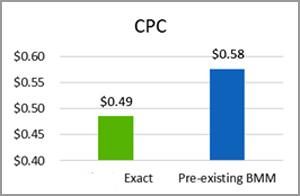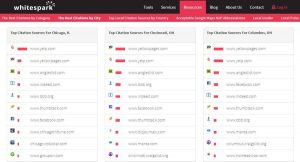Becoming a web developer isn’t for the faint of heart. But, considering the rise in tech startups and businesses in need of an online presence, it’s a career field that isn’t going away anytime soon.
In fact, the US Bureau of Labor Statistics estimates that nearly 40,000 more web developer jobs will be created over the next eight years. For aspiring web developers, that’s great news.
But, what if you don’t know the first thing about writing code, and what if you’ve never worked anywhere near a startup?
If you’re feeling overwhelmed, don’t fret; here are four pieces of advice for aspiring web developers on getting your career off on the right foot.
Tip #1: Start with the basics.
Fortunately, we live in a world where free (or low cost) information is virtually at our fingertips. Even if you don’t know the first thing about coding, free online resources and coding webinars, can help you learn the basics.
“I’d really encourage people to start with the very basics of coding. You really need to get the fundamentals of programming right before you switch to web development per se. Forget HTML/CSS/Javascript and all of that stuff, first start with the basics of programming. Once you’ve done those, then move on to HTML/CSS and coding of dynamic websites. As you learn more and more you’ll start getting exposed to all sorts of frameworks. Don’t try to learn everything. See what you enjoy doing, and focus on those,” suggests David Attard of Dart Creations.
Tip #2: Identify the skills and experience you need to work in niche you want.
One of the first steps in any new career path is to identify an end goal for what you want to accomplish. Is your goal to create an app, or maybe a new software program? You’ll need to figure that out first.
The key is to identify the end goal and then research the skills and experience you’ll need to accomplish your goal.
Cyndi Williams of Novus Web offers this advice on finding a specialty, “Focus initially on building an expertise in one or two technologies so you can truly be a master quickly. Don’t waste time learning to build sites from scratch. No one expects it these days, and fewer will pay for you to hand-code the entire site.”
Tip #3: Contribute to an open source project.
The benefit of contributing to an open source project is that you don’t have to be a coding master to get started. It can be a great way to dip your toe in the water, without being intimidated.
The key is to find the right open source project to contribute to, and to actually get involved. A common place to start is to work on a project you actively use already.
Tip #4: Be flexible and keep learning.
“To someone who’s pursuing a career in web development, I would say you have to be flexible and eager to learn at all times. The internet is a constantly evolving beast and the “rules” for web design/development change along with it—sometimes, it seems, on a daily basis. It is an “adapt or be left behind” industry,” offers Chris Vermeren of Think Moncur.
Much like any other trade or expertise, becoming a master takes time. Putting the time in to continue learning about web development will behoove any aspiring web developer.
Mario Peshev, an experienced web developer adds, “Learning the basics of software engineering and computer science is essential for web engineers. The vast majority of the web developers don’t put the time to understand how a computer works, what the meaning of IP is and why we need networks in the first place.”
Careers in Web Development Aren’t Just for Millennials
The rise in new web developers isn’t just isolated to Millennials and techies. A boom in ‘encore entrepreneurs’ is also set to make an impact on the web development industry; with more seniors than ever before launching new careers in the industry.
Infographic Source/Used With Permission From: Varooma
No matter your age, or level of coding expertise, it’s never too late to start a new career as a web developer. It’s a rewarding industry, with plenty of anticipated growth and a demand for newcomers in the industry.
Ben Lumley, of Dijitul, offers this parting advice for new developers, “I would also advise all future web developers to gauge a deep understanding of user-experience, after all, this is what makes your website and coding successful.”
Digital & Social Articles on Business 2 Community(49)
Report Post






